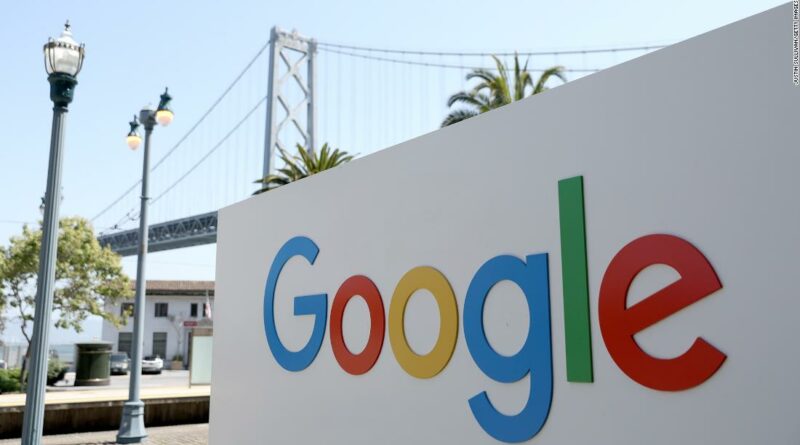3 reasons why Deutsche Bank is forecasting a recession
A version of this story first appeared in CNN Business’ Before the Bell newsletter. Not a subscriber? You can sign up right here. You can listen to an audio version of the newsletter by clicking the same link.
London (CNN Business)The tech-heavy Nasdaq Composite was a huge beneficiary of the stock market’s epic recovery from the pandemic. Now, it’s facing ever deeper losses as investors fear that fast-growing companies are running out of steam.
What’s happening: The Nasdaq dropped almost 4% on Tuesday, sending the index to its lowest level since December 2020. The S&P 500 lost 2.8%. It’s now 13% below its January high.
“The market has fallen significantly from its peak at the start of the year and, more recently, has taken a sharper drop,” said Brad McMillan, chief investment officer at Commonwealth Financial Network.
So what’s driving the painful sell-off?
Earnings: Stocks of Big Tech companies soared after the 2020 market crash. Their businesses proved resilient, and investors — flush with cash thanks to efforts by central banks to prop up the economy — rushed to capitalize on their rapid growth.
Now, Wall Street is giving these companies another look amid doubts they can maintain the momentum needed to justify their high valuations. Last week, Netflix’s earnings catastrophe sent its shares plummeting.
Google’s parent Alphabet (GOOGL) said Tuesday that its sales growth in the first quarter slowed to 23%, slightly below Wall Street’s forecasts. Alphabet’s full-year sales growth for 2021 came in at 41%. Shares fell more than 3% before the report on Tuesday and are down another 4% in premarket trading on Wednesday.
“They don’t tend to miss their earnings, so I think that was the big shock for markets,” Justin Onuekwusi, Legal & General Investment Management’s head of retail investments, told me.
Economy fears: The Federal Reserve is yanking support for the economy to fight the highest inflation in four decades. But if it’s too aggressive in raising rates, it risks sending the US economy into a recession, which would further weigh on corporate earnings.
Deutsche Bank, which earlier this month became the first major bank to forecast a US recession next year, said Tuesday that it now expects a “major” downturn.
In a report titled “Why the coming recession will be worse than expected,” its economists said it’s “highly likely that the Fed will have to step on the brakes even more firmly, and a deep recession will be needed to bring inflation to heel.”
Growth is also slowing sharply in China, the world’s second largest economy, as the country tries to limit the spread of coronavirus. That’s bad news for the rest of the world.
“Clearly, as we’re recovering, we need Chinese demand,” Onuekwusi said.
Rising rates: Yields on US bonds, which move opposite prices, have jumped this year in anticipation of the Fed’s plan to raise interest rates. The yield on the benchmark 10-year US Treasury note is now at 2.76%. At the beginning of 2022, it was near 1.5%.
As yields on safe debt rise, investors start to rethink riskier gambles on the future earnings of companies. Tech stocks, in particular, start to look less appealing.
Looking ahead: Not all earnings have been cause for concern. Microsoft (MSFT), which also reported results on Tuesday, said its revenue rose 18%. Its shares are up 4% in premarket trading. But with Facebook’s Meta (FB), Apple (AAPL) and Amazon (AMZN) still to come this week, markets are likely to remain on edge.
“Because these stocks are bigger and bigger and bigger, any disappointment is going to have a massive impact,” Onuekwusi said.
Russia shuts off natural gas supplies to Poland and Bulgaria
Following Russia’s invasion of Ukraine, fears spiked that Moscow could weaponize the country’s energy supplies as a means of retaliating against the West for punishing sanctions.
That’s no longer a hypothetical. On Wednesday, Russia cut off natural gas supplies to Poland and Bulgaria after they refused to pay in rubles, dramatically escalating tensions.
“Energy is being increasingly weaponized as the war in Ukraine looks set to enter the long haul and expectations grow that a crude oil embargo will end up being slapped on Russia by the EU,” said Hargreaves Lansdown analyst Susannah Streeter.
The European Commission described the decision to halt supplies as attempted “blackmail” and said it was coordinating a response among EU member states.
Poland had been preparing for a move like this by importing more liquified natural gas from countries like Qatar. But the development feeds worries that Russia could hit Germany by stopping flows of gas through the crucial Nord Stream pipeline.
Germany has warned that it would plunge into a deep recession if its supply of Russian natural gas was suddenly shut off, losing $234 billion in economic output over the next two years and hundreds of thousands of jobs.
Investor insight: European natural gas prices spiked on the news, rising more than 20% early Wednesday before falling back.
Stocks in Europe largely shrugged off the development, but the euro sank. Faced with a strong US dollar, it fell below $1.06 for the first time in five years.
Tesla shares just plunged. That’s bad news for Musk
In yesterday’s edition of Before the Bell, we highlighted how Elon Musk’s deal to buy Twitter posed a risk to Tesla (TSLA) shares.
It didn’t take long for investors to indicate they were rattled. Tesla’s stock plunged 12% on Tuesday, notching its worst day since September 2020. The decline wiped $126 billion off the company’s market value.
Remember: Musk has secured more than $25 billion in debt financing from banks including Morgan Stanley. But he still needs to put up roughly $21 billion on his own.
Most of Musk’s riches are tied up in Tesla shares. That’s raised questions about whether he could offload a portion of his 17% stake to come up with the cash.
It’s also not clear how involved Musk will be at Twitter. Could he be stretched too thin, giving him less time to focus on running the world’s most valuable automaker?
It may take some time for investors to sort through these unknowns. But their unease puts pressure on Musk, who used his Tesla holdings as collateral for some of the loans he received. As the value of his stake drops, he has less room to maneuver, which could be a problem as bankers and lawyers work to close the deal.
Up next
Boeing (BA), Harley-Davidson (HOG), Kraft Heinz (KHC), Steve Madden and Spotify (SPOT) report results before US markets open. Meta, Ford (F), Hertz (HTZ), Mattel (MAT), PayPal (PYPL) and Qualcomm (QCOM) follow after the close.
Coming tomorrow: Apple and Amazon wrap up Big Tech earnings.
Source: Read Full Article



